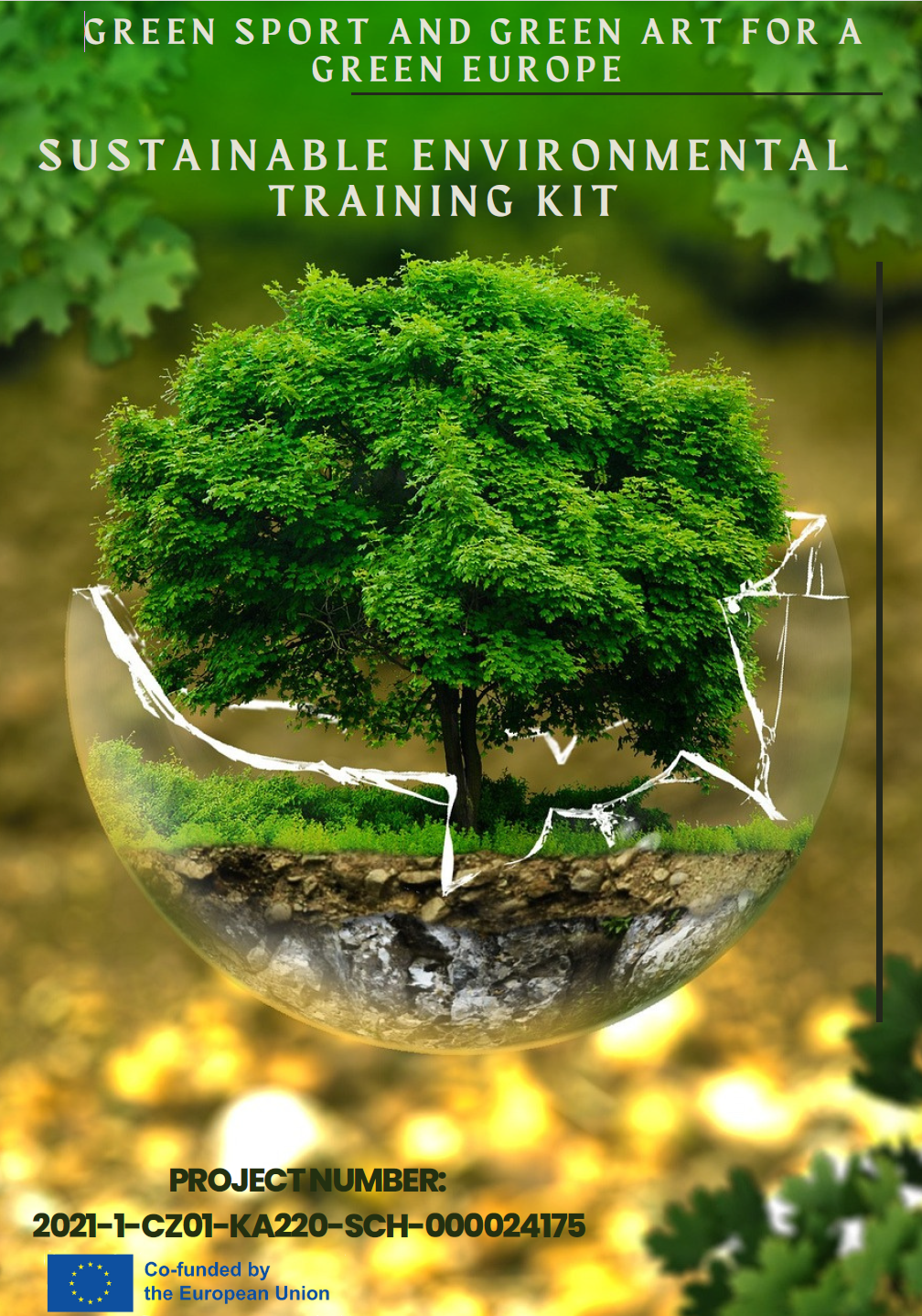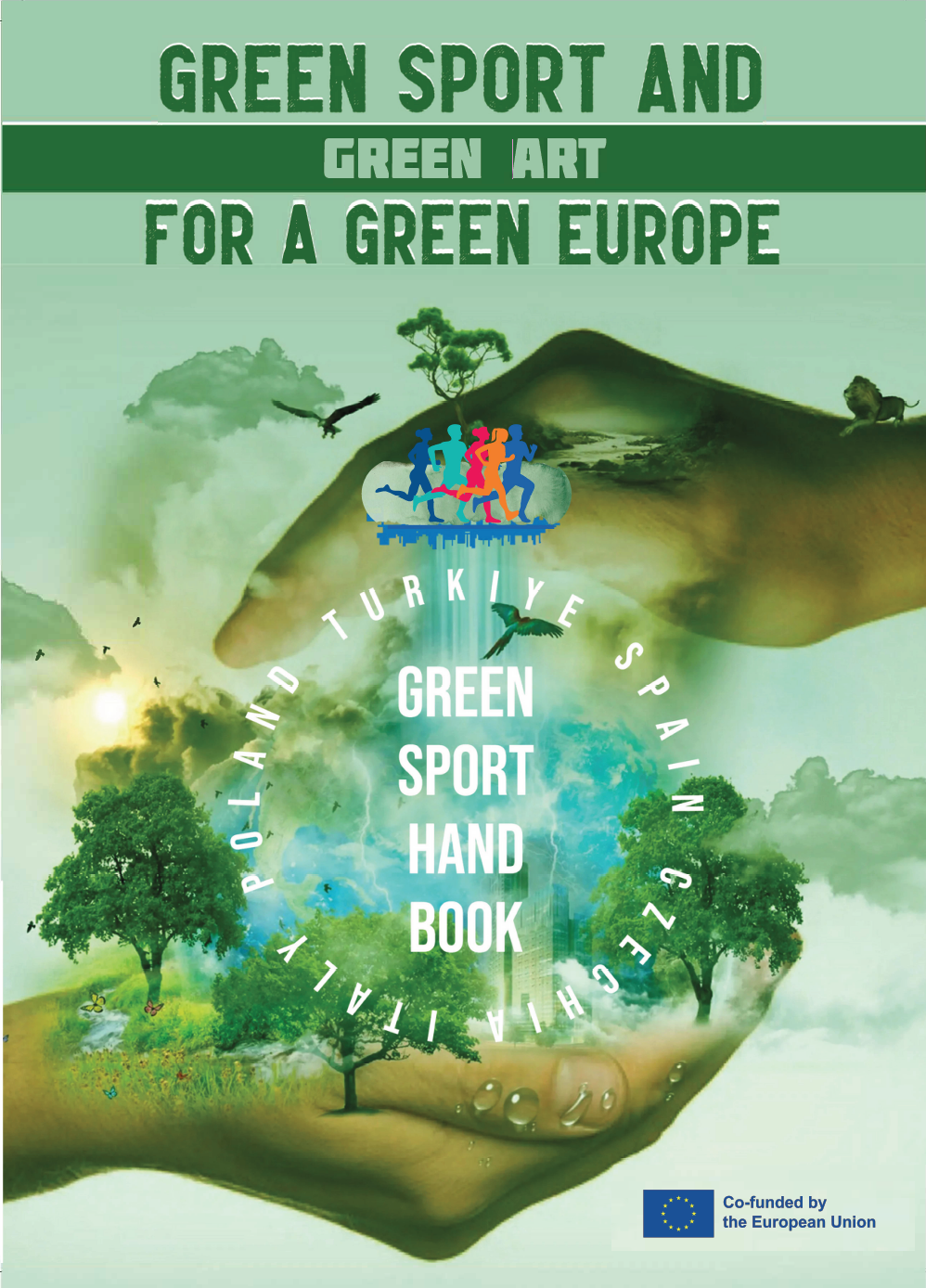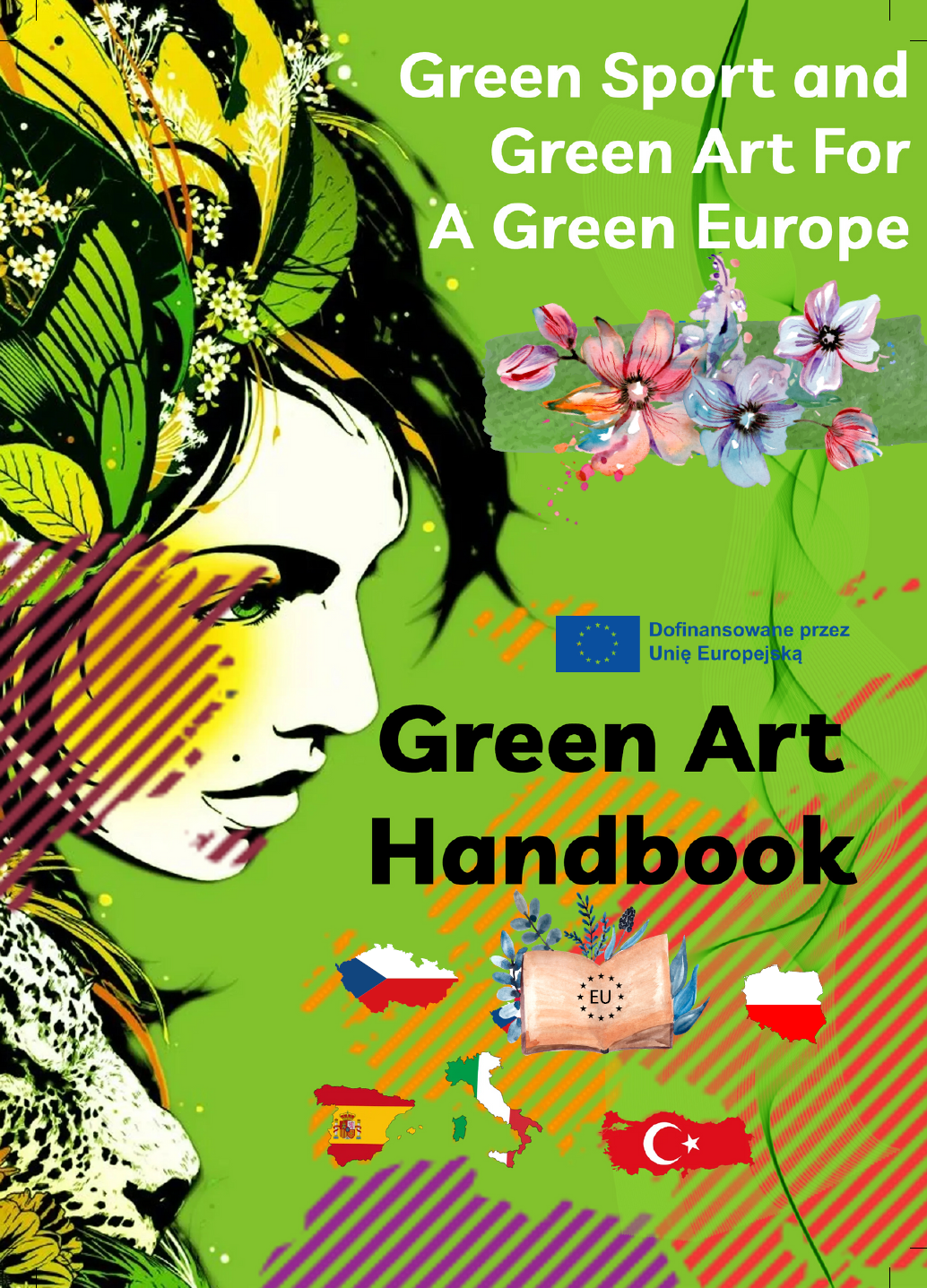GREEN EUROPE
Project title: GREEN SPORT AND GREEN ART FOR A GREEN EUROPE
Duration: 01-11-2021 30-06-2024
Project number: 2021-1-CZ01-KA220-SCH-000024175
Programme: Erasmus +
Key Action: Cooperation partnerships in school education
Coordinator: Střední zdravotnická škola a Vyšší odborná škola zdravotnická Czech Republic
Website: under construction
Facebook: under construction
Keywords: Environment And Climate Change, Cultural Heritage/European Year Of Cultural Heritage, Inclusion Of Marginalised Young People
OVERWIEV
Today, the fact that industrialization, urbanization and advanced technology facilitate human life is defined as "modern life". Modern lifestyle is an approach that puts people at the center of life. Therefore, measure in modern life; are human and human needs. Over time, people have seen themselves as the masters of nature. The wrong behaviors developed by evaluating nature as a product that can be consumed and put at the disposal of people have led to the excessive use of natural resources and many environmental problems. On the other hand, the facilities provided by the modern lifestyle narrow the physical range of people and impose a sedentary life on people. Health problems and environmental problems related to sedentary life, which can be considered as the disadvantages of modern life, are the two most important problems in Europe. According to WHO data, it is stated that overweight affects 30-80% of adults in Europe, approximately 20% of children and young people are overweight and one third of them are obese. According to the report of the European Environment Agency, environmental pollution causes early death of an average of 500 thousand Europeans every year. Today, an average of 400 kg of "urban (domestic) solid waste" is generated per capita annually in European Union member countries. Leaving environmental solid wastes to nature is one of the important causes of environmental pollution and related environmental problems. Among the solid wastes left in the environment, plastic bottles can decompose in 1000 years, batteries in 100 years, plastic bags in 10-20 years and glass bottles in 4 thousand years. These figures show that the health of future generations of Europe, leaving a livable Europe to future generations and ensuring the continuity of the EU depend on the measures to be taken today. As much as the sustainable environment and raising a healthy generation, the EU considers "cultural and social integration" as important for the continuity of the union. To ensure sustainability in protecting the common cultural heritage in terms of ensuring the cultural integrity of the EU; It depends on the formation of awareness and awareness in individuals, the awareness of the society about cultural heritage, and the perception of heritage. Young people are the key people who can connect the past, present and future in recognition and protection of cultural heritage.
According to Eurostat 2018 data, 16% of the EU population is below the poverty line. Young people who are economically and socially restricted due to poverty and who are excluded from social life; It does not seem possible for the EU to absorb the common values, to experience the European cultural heritage through a proper life, and to participate fully in social and cultural life. We cooperated on the basis of common needs and goals in our project of 4 schools, 2 associations and 1 university from Europe, which provide education to students who are socio-economically disadvantaged and at risk of social exclusion. As the institutions / organizations in the project, we aim to mobilize our students, who are the determinant of the future of the EU and Europe, represent the young generation, for their own health and sustainable environment, and to reveal their existing potential. At the same time, we want to increase the awareness of the disadvantage of our target audience about European cultural heritage and European common culture / art. Thus, we will have served the EU's cultural policy with our project, which aims to discover the cultural heritage of European cities and European nations, to protect and recognize their local culture and identities, and to promote their cultural diversity and to achieve greater integration
PROJECT RESULTS
TEACHER TRAINING: Participating teachers who will attend POLISH UNIVERSITY C1, C2, C3 will provide 12 hours of online sustainable environmental education. In addition, the academicians who will participate in C1, C2 and C3 will provide vocational training to participating teachers on creating a 12-hour guide and training kit, integrating environmentalist approaches into lessons, preparing teaching environments, functional teaching methods and methods. Project on the implementation of the Sustainable Environmental Education Kit, the contents of which will be created by teachers in C1, C2, and C3, in partner schools, and the ratio of teachers participating in C1 to provide sustainable environmental education to their colleagues in their schools, and the ratio of teachers who adapt environmentalist approaches to their lessons and provide professional development related to the environment The goal will be achieved. With the green arts education to be given by the partner, which is the NGO in Denmark, in C2, the visual arts teachers of the schools, and the training about green sports to be given by the EDCA (TR-NGO) in C3, the physical education teachers of the schools will provide customized professional development in their branches.
STUDENT EDUCATION: Sustainable environmental education will be given by the host school to the participating students in C4, C5, C6, C7. Other students of the schools will be trained by the school teachers participating in C1. Thus, our goal regarding the increase in the number of students receiving environmental education will be achieved.
GREEN ART AND GREEN SPORTS ACTIVITIES: Students who will participate in C4 and C5 will acquire knowledge and experience about green arts with their European peers. With the implementation of the Customized Education Kit for Culture, Art and Environment and the Customized Education Kit for Sports and Environment in partner schools, other students of schools will gain knowledge and experience about green arts and green sports. According to the results of the survey, we will achieve the rate we aim for in the number of students participating in environmental activities by associating the students' favorite lessons with sustainable environmental activities. We will achieve our goal regarding the cultural awareness we want to create in students by associating green sports and green arts activities with items of cultural heritage value.
PROJECT PARTNERS
- Colegio Sagrado Corazón de Jesús y María Inmaculada - Spain
- European Development and Change Association - Turkey
- Liceo scientifico statale Giuseppe Peano - Italy
- SARAR KIZ ANADOLU IMAM HATIP LISESI - Turkey
How to contact us?
Contact to the institutional coordinator: j.wisniewski@wsbinoz.pl
Project results
"Funded by the European Union. Views and opinions expressed are however those of the author(s) only and do not necessarily reflect those of the European Union or Czech National Agency for International Education and Research. Neither the European Union nor the granting authority can be held responsible for them."






